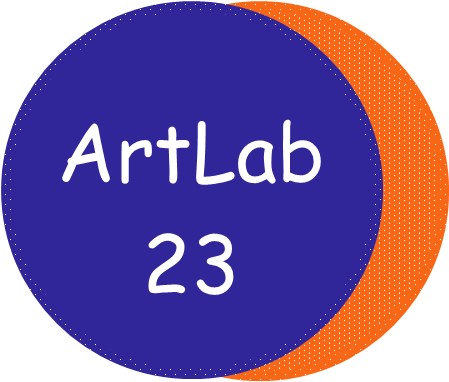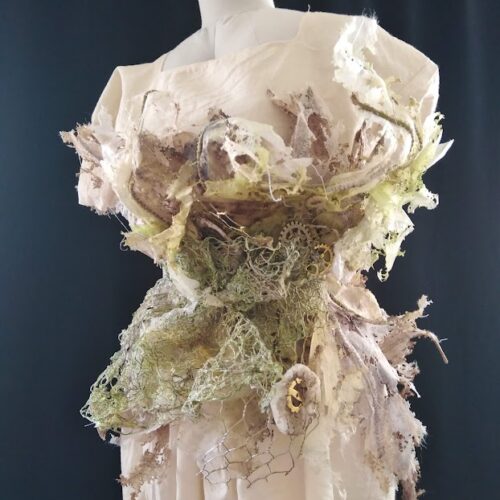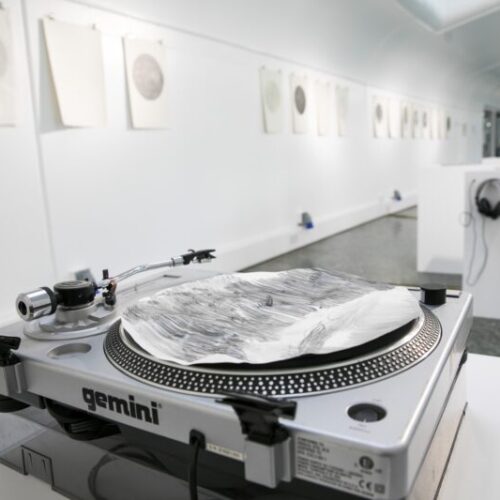
Assessment Feedback
 Another assessment event is looming so I wanted to feed back to students some of the issues that have cropped up for me as an assessor.
Another assessment event is looming so I wanted to feed back to students some of the issues that have cropped up for me as an assessor.
The course is open access but has a fixed end point. No special treatment is given at level three – all degrees are awarded for the same criteria. This means that everyone needs to make an assessment of their own starting position and decide if they have the time to put in and want to make the commitment necessary to succeed in the long term. Without enough time for the course, ideas don’t have enough time to ferment so the work tends to lack depth and there will not be enough time to find your own voice or learn the core skills you need.
Put simply, by the end of level 1 you need to have developed some fairly meaty core skills in observation and handling materials. You need to have experimented with paint and other materials and developed a visual curiosity. You need to have set up a process of experimentation and research, focussed and relevant contextual study and studio practice that operates in a kind of virtuous loop. Your sketchbook / camera / log need to be your constant companions.
It might be useful for some students to take some time to take stock – assess your core skills and decide what you need to do to bring them up to standard. Assess how many hours you put into your course and decide if it is adequate. Assess how relevant and useful your contextual study is and consider identifying artists who appears more directly relevant to your current concerns that you could look at in more depth.
By the end of level 2 those core skills you acquired in level 1 and the work you did to familiarise yourself with processes and materials will have focussed into a more coherent directed studio practice. You need to know who you are as an artist so that as you enter level 3 you can set your own projects and steer your own course – skills which you will then utilise for the rest of your creative life.
It should be a regular almost symbiotic process for you at later levels to reassess your ambitions for your work, look at the course projects and take the time to reflect on them and make them relevant to your emerging areas of interest.
At level 3 then you are in a position to be ambitious, confident in the knowledge that you have a robust reflexive working method that enables you to explore your ideas constructively.
Students talk about wanting to get a degree – but it’s wanting to do a degree that is important.
If you are enjoying drawing and painting – do you need a degree? Don’t get a degree to validate what you are already doing. You may even find that, despite having quite good technical skills you get very low marks or even fail courses because you are just doing what you always do and there is no evidence that you are learning or challenging yourself or that you are engaging with ideas at an appropriate level. Doing art within an academic environment at Higher Education level is one choice of many and it is a specific one involving a level of critical thinking and contextual research which is not useful for everyone. Some students would be better placed going for the diploma so that tutors can work with them individually.
Finally I was amazed at the assessment event to see some students were still sending in inappropriately presented work, too little work, portfolios without any attempt to be selective etc etc. The guidelines are quite clear so do please read them if you are going for assessment – and good luck.






I think what you said about wanting to do a degree rather than get a degree is very apt. It may well be a sign of our current culture- the ‘in it to win it’ attitude that we see on television. I’m not suggesting that students are doing this wittingly, but there is a strong push in the direction of being validated in everything we do. Educational establishments are in this deep- even leisure learners are now being encouraged to study for credit. It starts at nursery school, where learning outcomes are implemented. There is something to be said about doing things purely for your own pleasure/ growth as an artist, but doing a degree is a commitment that cannot be taken lightly.
I applaud you for wanting to keep the skills at a high level and not award degrees to people who lack talent. It is often commented on that “you don’t have to be able to draw to have a degree in painting and drawing”. It’s a harsh comment and to keep art degrees meaningful it is essential that the skills remain high. As I am currently doing my last level 1 course I’d be grateful if you could clarify “Put simply, by the end of level 1 you need to have developed some fairly meaty core skills in observation and handling materials. You need to have experimented with paint and other materials and developed a visual curiosity. You need to have set up a process of experimentation and research, focussed and relevant contextual study and studio practice that operates in a kind of virtuous loop”. Can you give some examples of “fairly meaty” and “relevant contextual study” and suggest ways to gain these skills if we find that they are lacking? Also is there a time period for the maximum time taken to gain all the necessary points e.g if I some time out between 120 points and reaching the required 360, will I find I’m no longer able to use the points I gained many years ago?
Hello Julia, I’m sure someone more au fait with the technicalities of points etc will respond to the last part of your question.
The level 1 courses are quite thorough, and I have had students who have come in without any real previous experience and left level 1 in a good position so it is possible to do it! I would say though that you are a student of the OCA and the institution will do all it can to help you through your onward learning journey. Assessment isn’t a kind of trap door where we tip the unfortunates and leave them behind. Your tutor should be able to give you a good idea of how things are going. If you are getting to the end of your course and feel that you are not ready to move on to level 2, it is possible to purchase extra tutorials – again this is something someone at HQ can explain more clearly I expect.
We are not expecting miracles at level 1, but I think it is essential that students have moved past ‘picture making’ and into a way of using drawing to make explore the world around them. The way to get good at drawing is to do absolutely loads of it, especially pushing yourself to look very hard at specifics. Thsi doesn’t mean labouring over hyperrealist masterpieces, it just means being very focussed physically and mentally on what you are doing. I was drawing piglets the other day in my sketchbook. The little devils were running all over the place and I had about 16 pages of ears, feet and bums – I didn’t get one single whole piglet. I did get a headache though because I had been focussing so much on trying to capture angles, shapes and patches of tone as quickly and precisely as I could.
Relevant contextual study means that you have sought out, or been directed to, relevant artists and that by looking at their work you have learned something useful for your own practice. I know sometimes one can feel like a child in a sweet shop wanting to paint like Turner and Picasso and Peter Doig and Jenny Saville. It’s more helpful though if you can link your contextual work with your studio practice. If you are trying to work more texturally for example – look at Joan Eardley. Then look at Anselm Kiefer and Jason Martin and write in your log what you think of their work in your own words, followed by a concrete plan of action as to how you are going to use what you have been thinking about in relation to these artists in your assignment piece. If you find an artist you think could be useful for you, think about why you like them and ask your tutor to recommend a couple more in the same vein.
I hope this helps, Julia, but please don’t panic unduly and do talk to your tutor if you have any concerns.
Many thanks Emma. I really appreciate your very helpful and detailed advice and couldn’t help smiling at the thought of the piglets! I now feel I understand what I need to do to reach the next level. Whilst I had been commenting in detail on the work of other artists I feel I stopped short of explaining how I would use this experience to improve my own work. Thank you!
Hi Emma/Julia,
I am a Creative Writing student doing Writing Skills 1. I am beginning to develop an inkling in looking at contextual study. As I have started to read lots of books on writers I like and then have broken this down in to movements e.g. Gothic literature, where I am reading Frankenstein, or reading Brontes or Autsten and aim to look at Russian/American Literature too. I have also been reading plays to explore dialogue and went to see Betrayal to inform my knowledge on the play Betrayal. This has helped me understand how dialogue works and what its function is e.g how it can move the narrative along. I have found that it is helping me to develop a critical ear with regards to my own writing. I known you are talking about Painting and Art. But is that the kind of study that you expect us to explore and then record? Is this an example of doing the degree rather than getting a degree?
Hello Razaz, although I am an avid reader I no nothign about creative writing as a discipline! It sounds as if you are opening yourself up to new experiences, challenging assumptions and putting large amounts of effort in as you reflect on the nature and context of creative writing – which is a lot of what I was talking about.
Started out recently in Painting 1 and found the series of articles and discussions really helpful. Thanks to all.
welcome aboard Mary, the website has so much to offer and it is a great place to meet your fellow students. Best of luck with painting 1
I found your comments very practical Emma- thanks
Thankyou Grethe – I hope you are enjoying your studies
A very interesting discussion, and also Jane Horton’s video,althoughthat is about a much higher level than I am on.
I will soon be thinking about my first assessment.I started in October 2010.Has the assessment advice book been updated since then?Iseem to have seen various references to that on the forums from time to time, and have not been successful in downloading another one[probably doing the wrong thing].
I am also concerned about getting finished on time.